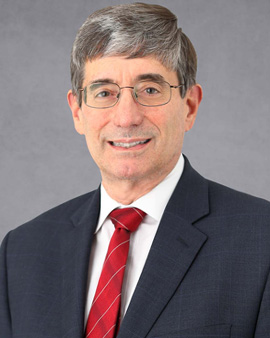
Kenny Simansky, PhD, Vice Dean for Research, Professor, Department of Pharmacology & Physiology
How would you characterize our competitive impact in biomedical discovery and translation?
Faculty of the College received $18.4 million in awards from the National Institutes of Health during the 2015-2016 fiscal year and $37.0 million from all sponsors. The NIH awards included diverse multidisciplinary projects that are furthering understanding of neurological and psychiatric disorders; infectious diseases, such as HIV/AIDS and malaria; and cancer. Early-stage and proof-of-concept research, disruptive ideas, and studies that are intentionally narrow in their focus are appropriately directed to other funders. Such projects are critical to challenge scientific dogma and to lay the groundwork for major funding in the future. Our faculty succeed in these arenas too.
The College continues progress in therapeutic drug development, with some drug candidates leading to licensing and formation of new companies. Our junior faculty have had significant and increasing success in obtaining major extramural support. This augurs well for our future.
What are some of the strongest areas of research here?
We are recognized nationally and internationally in many areas of basic biomedical, translational and clinical science. Research in neurosciences and in infectious diseases has had the broadest impact, with several programs funded continuously for more than 30 years. Cancer research is emerging as a notable strength. Our work in neuroscience includes spinal injury, repair and recovery; pain; neurodevelopment; and the neural mechanisms of psychiatric disorders. Infectious disease includes neuroAIDS; use of CRISPR technology to formulate a cure for HIV; immune defense mechanisms; genomics and bioinformatics of bacterial diseases; and malaria.
In cancer, faculty are making their mark in basic cellular biology, oncogenic actions of viruses, and novel drugs to inhibit primary tumors and prevent metastatic disease. Drexel is one of the consortium members of the Sidney Kimmel Cancer Center at Thomas Jefferson University, designated as a Consortium Cancer Center by the National Cancer Institute. Four College of Medicine faculty members have leadership roles within the consortium. This partnership has worked seamlessly to expand scientific and grant opportunities for our faculty.
What's the most exciting thing going on now?
I am excited by the increasing number of initiatives in which basic and clinical scientists are collaborating, with the clinicians setting the problem and direction. In addition to the examples highlighted in this issue, I include neurovascular and cardiovascular disease; infectious diseases and immunology; neonatology, perinatal medicine and population science; transplant medicine and surgery; and musculoskeletal disorders.
Can you comment on the role of internal grant programs?
The CURE program is supported by annual funds from the commonwealth of Pennsylvania for innovative pilot studies that are selected after a rigorous NIH-style review by faculty across Drexel. It has led to significant extramural awards, scholarship, and training. The Clinical & Translational Research Institute has funded $2.2 million in studies that specifically require participation by clinicians. These proposals have also led to external support and taking discoveries towards commercialization. This investment came entirely from College funds, but was extended to all faculty across Drexel.
What are your goals for the future?
Foremost is to grow research in the clinical sphere. Broadly defined, I include translating discoveries at the scientists’ and engineers’ benches into proof-of-concept determinations in humans; full-scale studies evaluating disease mechanisms and treatments in patients; optimizing methods for delivering clinical service; and incorporating health informatics for outcomes research throughout our enterprise.